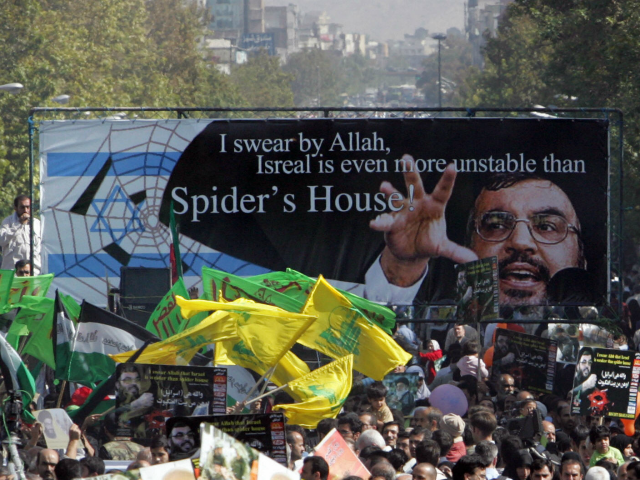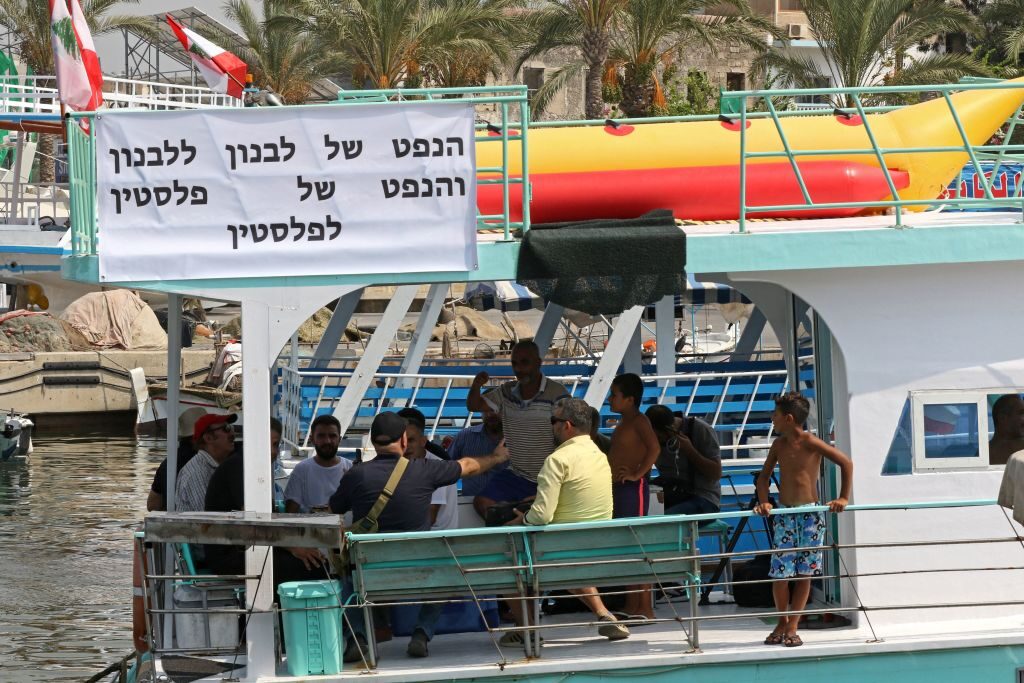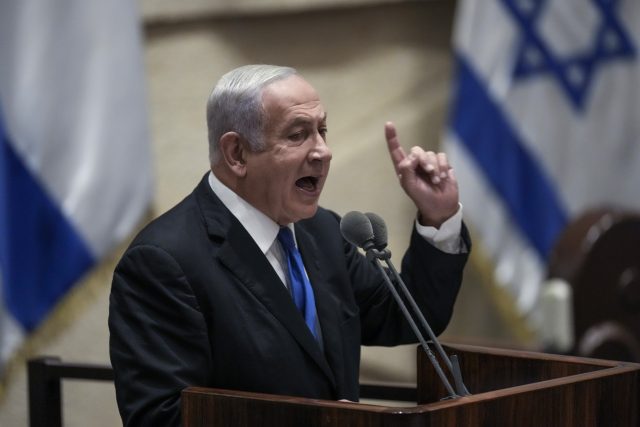Former Prime Minister Benjamin Netanyahu on Tuesday slammed the current Israeli premier Yair Lapid for agreeing to a U.S.-drafted maritime border agreement with Lebanon that was a “surrender to Hezbollah.”
“For more than a decade, the governments under my leadership did not give in to Nasrallah’s threats – and we did not suffer a war. Until Lapid arrived,” Netanyahu said, referencing the Hezbollah terror chief, Hassan Nasrallah.
“Within three months, Lapid completely surrendered to all of Hezbollah’s demands. On the day Lapid entered the Prime Minister’s office, Nasrallah launched drones into a gas rig in our territory – something which he did not dare to do under the governments headed by me. He threatened Lapid: ‘By force of arms I will force Israel to surrender in negotiations.’ Lapid was frightened – and surrendered,” Netanyahu said.
Netanyahu went on to say that Lapid had opposed the terms proposed by Netanyahu that would turn “Israel into a world gas power” but is now in a “hurry to get the gas out of the water in favor of Hezbollah.”
“How is Lapid trying to justify the surrender? He says it is required in order to get the gas out of Karish [gas field],” he said.

File/Iranian protestors holding up a banner with the picture of Lebanon’s Hezbollah leader Hassan Nasrallah and waving yellow flags of the Shiite Muslim guerrilla group, take part in a demonstration in Tehran to mark Jerusalem (Al-Quds) Day, 20 October 2006. (BEHROUZ MEHRI/AFP/Getty)
“I would like to remind Lapid that the Karish reservoir is deep within our territory, that the development work there began five years ago, and that we never dreamed of asking Nasrallah for permission to operate it. As David Friedman, the former U.S. ambassador who dealt with the issue, said: ‘Lebanon received 100%, Israel received 0‘. he was right.
This is not a historical agreement, this is a historical surrender – a liquidation sale of Lapid.”
Netanyahu concluded by saying that “whoever surrenders to Hezbollah like this cannot be prime minister.”
He also charged Lapid with not being fit “to deal with Iran’s race for nuclear weapons, and with the destabilization of the world order following the crisis in Ukraine.”
Lapid’s strategy was to counter “threats with surrender,” Netanyahu maintained, which is “a strategic danger to Israel’s security.”
On Tuesday, both Biden and Lapid hailed the agreement as a “historic” achievement.
The deal will allow energy production from the offshore Karish gas field, which is the crux of the dispute between the two nations. While Israel maintains that the gas field is within its territorial waters, Lebanon claims it’s partially within theirs.

A sign reading in Hebrew “Lebanon’s oil is for Lebanon and Palestine’s oil is for Palestine” is displayed on a boat taking part in a Lebanese marine rally affirming the country’s claim to its offshore gas wealth, running from the southern coastal city of Tyre towards Naqoura near the maritime border with Israel on September 4, 2022. (MAHMOUD ZAYYAT/AFP via Getty Images)
The two countries, which are technically still at war, never demarcated maritime borders.
Hezbollah, the terror group that effectively controls Lebanese politics, has threatened war over Israel’s decision to develop the Karish field and has attacked the rig twice in recent months. The Israeli military has intercepted several Hezbollah drones headed for the rig in over the summer.
Professor Eugene Kontorovich, director of international law at the Jerusalem-based Kohelet Policy Forum, said the deal effectively meant “Hezbollah now overrides Israel’s democracy.”
“Transferring any national territory requires Knesset approval in Israeli law, as well as the constitutions of countries from the U.S. to Egypt. The reason the government claims it must do this now, before elections or a Knesset vote, is that this is Hezbollah’s demand to prevent war,” he said.

COMMENTS
Please let us know if you're having issues with commenting.